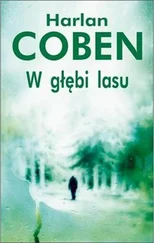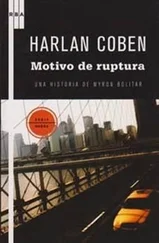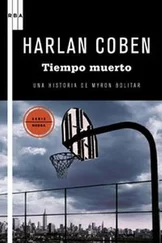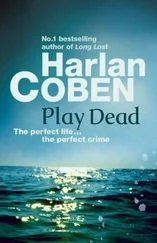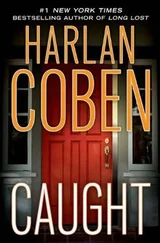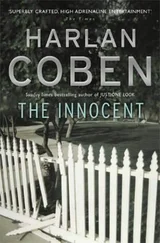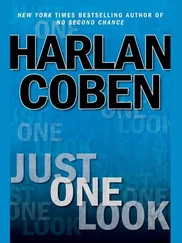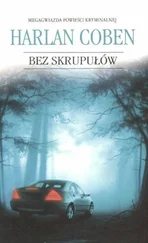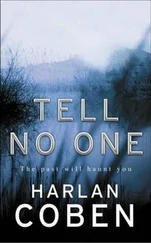Harlan Coben - Six Years
Здесь есть возможность читать онлайн «Harlan Coben - Six Years» весь текст электронной книги совершенно бесплатно (целиком полную версию без сокращений). В некоторых случаях можно слушать аудио, скачать через торрент в формате fb2 и присутствует краткое содержание. Год выпуска: 2013, ISBN: 2013, Издательство: Orion, Жанр: Старинная литература, на английском языке. Описание произведения, (предисловие) а так же отзывы посетителей доступны на портале библиотеки ЛибКат.
- Название:Six Years
- Автор:
- Издательство:Orion
- Жанр:
- Год:2013
- ISBN:9781409144571
- Рейтинг книги:5 / 5. Голосов: 1
-
Избранное:Добавить в избранное
- Отзывы:
-
Ваша оценка:
- 100
- 1
- 2
- 3
- 4
- 5
Six Years: краткое содержание, описание и аннотация
Предлагаем к чтению аннотацию, описание, краткое содержание или предисловие (зависит от того, что написал сам автор книги «Six Years»). Если вы не нашли необходимую информацию о книге — напишите в комментариях, мы постараемся отыскать её.
Six Years — читать онлайн бесплатно полную книгу (весь текст) целиком
Ниже представлен текст книги, разбитый по страницам. Система сохранения места последней прочитанной страницы, позволяет с удобством читать онлайн бесплатно книгу «Six Years», без необходимости каждый раз заново искать на чём Вы остановились. Поставьте закладку, и сможете в любой момент перейти на страницу, на которой закончили чтение.
Интервал:
Закладка:
“He had an affair with a student?”
“Maybe. I don’t know. Those were the rumors. Have you heard of Vice Chair Roy Horduck?”
“I’ve seen his name on some plaques.”
“Aaron Kleiner accused Horduck of plagiarism. The charges were never brought, but vice chair is a pretty powerful position. Aaron Kleiner got demoted. Then he got involved in a cheating scandal.”
“A professor cheated?”
“No, of course not. He made accusations against a student, maybe two. I don’t remember the details anymore. That might have been his downfall, I don’t know. He started to drink. He behaved more erratically. The rumors started.”
She stared down at the photograph again.
“So they asked him to resign?”
“No,” Mrs. Dinsmore said.
“Then what happened?”
“One day, his wife walked through that very door.” She pointed behind her. I knew what door. I had walked through it a thousand times, but I still looked, as though Natalie’s mom might walk through it again. “She was crying. Hysterical, really. I was sitting right where I am now, at this very spot, at this very desk . . .”
Her words faded away.
“She wanted to see Professor Hume. He wasn’t here so I called him on the phone. He hurried over. She told him that Professor Kleiner was gone.”
“Gone?”
“He’d packed his things and run off with another woman. A former student.”
“Who?”
“I don’t know. Like I said, she was hysterical. There were no cell phones back in those days. We had no way to reach him. We waited. I remember he had a class that afternoon. He never showed. Professor Hume had to cover that day. The other professors took turns covering until the semester ended. The students were really upset. Parents called, but Professor Hume placated them all by giving everyone an A.” She shrugged, pushed the yearbook back toward me, and pretended to get back to work.
“We never heard from him again.”
I swallowed. “So what happened to his wife and daughters?”
“The same, I guess.”
“What does that mean?”
“They moved away at the end of the semester. I never heard from them again. I always hoped that they all ended up at another college—that they patched things up. But I guess that wasn’t what happened, was it?”
“No.”
“So what happened to them?” Mrs. Dinsmore asked.
“I don’t know.”
Chapter 20
Who would know?
Answer: Natalie’s sister, Julie. She had blown me off on the phone. I wondered whether I’d have better luck in person.
I was heading back to my car when my cell phone rang. I checked the number on the caller ID. The area code was 802.
Vermont.
I answered the phone and said hello.
“Um, hi. You left your card at the café.”
I recognized the voice. “Cookie?”
“We should talk,” she said.
My grip on the phone tightened. “I’m listening.”
“I don’t trust phones,” Cookie said. There was a quake in her voice. “Can you get back up here?”
“I can drive up right now if you want.”
Cookie gave me directions to her home, not far from the café. I took 91 north and tried unsuccessfully not to speed. My heart pounded in my chest, keeping beat, it seemed, with whatever song was on the radio. By the time I reached the state line, it was near midnight. I had started that morning flying down to see Delia Sanderson. It had been a long day and for just a second, I could feel the exhaustion. I flashed back to the first time I saw Natalie’s painting of that cottage on the hill—to Cookie coming up behind me and asking if I liked it.
Why, I asked myself again, had Cookie acted as though she didn’t remember me when I stopped in the café?
There was something else that came back to me. Everyone else I met said that there had never been a Creative Recharge retreat, but when Cookie made her denial, she said, “We never worked at the retreat.”
I hadn’t caught that at the time, but if there had never been a retreat up that hill, wouldn’t your response be something like, “Huh? What retreat?”
I slowed as I passed Cookie’s bookshop café. There were only two streetlights, both casting long, menacing shadows. No people were present. The small town center was perfectly still, too still, like that scene in a zombie film before the hero gets surrounded by the flesh-eaters. I made a right at the end of the block, drove half a mile, made another right. There were no streetlights now. The only illumination at all came from my headlights. If I was passing houses or buildings, all the lights had been turned off there too. I guess no one out here left their lights on a timer to deter burglars. Smart move. I doubted in this darkness that burglars could find the homes.
I checked my GPS and saw that I was half a mile from my destination. Two more turns. Something akin to dread started seeping into my chest. We have all read about how certain animals and sea creatures can sense danger. They can actually feel threats or even oncoming natural disasters, almost as though they had survival radar or invisible tentacles reaching out and around corners. Somewhere, of course, primitive man must have had this ability too. That sort of survival stuff stays with us. It may lie dormant. It may wither away from lack of use. But that instinctive Neanderthal man is always there, lurking under our khakis and dress shirt.
Right now, to use vernacular from my comic-book youth, my Spidey senses were tingling.
I turned off the headlights and slowed to the curb in pitch darkness practically by sense of touch. There were no stones framing the street. The pavement just gave way to the grass. I didn’t know what I was about to do, but the more I thought about this, the more I thought that maybe some measure of care was in order.
I could walk from here.
I slipped out of the car. Once I closed the door, once all the light was gone, I realized just how dark it really was. The night seemed to be a living thing, consuming me, covering my eyes. I waited a minute or two, just standing there, letting my eyes adjust. Eyes adjusting to darkness—another one of those talents we undoubtedly inherited from primitive man. When I could see at least a few feet in front of me, I started on my way. I had my smartphone too. It was loaded up with apps I never used, but the one I did, the one that was probably the most useful and least techie, was the simple flashlight. I debated turning it on but decided against it.
If there was danger here—and I couldn’t imagine what that danger might be or what form it might take—I didn’t want to give it a heads-up with a shining flashlight. That had been the whole point of parking and sneaking up, right?
I flashed back to being trapped in the back of that van. I had no qualms about what I’d been forced to do to escape—I would do it again, of course, a thousand times over—but there was also no doubt that Otto’s final moments would haunt my sleep until the day I died. I would always hear the wet crack of that neck snapping, would always remember the feel of bone and cartilage giving way, ending a life. I had killed someone. I had snuffed out a human being.
Then my thoughts turned to Bob.
I slowed my step. What did Bob do after I escaped down the hill? He must have gotten back in his van, driven away, probably dumped Otto’s body someplace, and then . . .
Would he maybe try to find me again?
I thought about the strain in Cookie’s voice. What did she want to tell me? And why was it suddenly so urgent? Why call me up here now, late at night, not giving me a chance to think it all through?
I was on Cookie’s block now. Small lights were on in a few of the windows, giving the houses a spooky, jack-o’-lantern glow. The house at the end of the cul-de-sac had more lights on than the others.
Читать дальшеИнтервал:
Закладка:
Похожие книги на «Six Years»
Представляем Вашему вниманию похожие книги на «Six Years» списком для выбора. Мы отобрали схожую по названию и смыслу литературу в надежде предоставить читателям больше вариантов отыскать новые, интересные, ещё непрочитанные произведения.
Обсуждение, отзывы о книге «Six Years» и просто собственные мнения читателей. Оставьте ваши комментарии, напишите, что Вы думаете о произведении, его смысле или главных героях. Укажите что конкретно понравилось, а что нет, и почему Вы так считаете.


